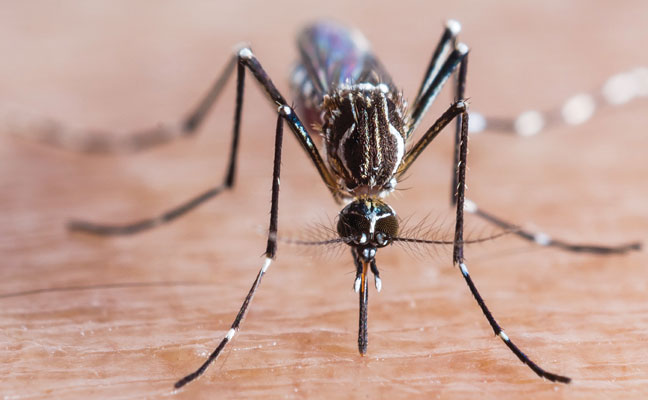
This past April, researchers at Ohio’s University of Cincinnati published results of a study in the Journal of Medical Entomology that focused on how different sugars would affect the behavior of two common mosquito species. The verdict? A high-sugar diet can interfere with the ability to sense humidity — and thus, the neccessary bloodmeal or water — in both yellow fever (Aedes aegypti) and common house (Culex pipiens) mosquito species.
A June 25 article in the Entomological Society of America’s online publication, Entomology Today, points out that “different forms of sugar and what they do to insects have been studied extensively. Artificial sweeteners can be lethal to Drosophila flies, and too much sugar can negatively impact the sensory behavior of certain insects, too.” Where this study differed, though, was detecting how one of the several sugars studied stood out from the pack: arabinose.
Per ScienceDirect.com, arabinose is a simple five-carbon sugar often found in plants. The Entomology Today article puts the survey’s results in laymen’s terms: Yellow fever mosquitoes that were exposed to arabinose “showed high mortality, even at low concentrations. Other sugars impacted humidity detection in both species, especially in house mosquitoes, which showed a reduced ability to distinguish between dry and moist environments. However, host-seeking behavior wasn’t affected. Even when mosquitoes had impaired humidity sensing, they could still detect body heat and successfully land on a human hand.”
What does this mean to the professional pest management industry? As noted in the journal abstract: “Our study suggests that specific sugar treatments could be applied to mosquito control by dampening their humidity preference and reducing their lifespan, thus reducing mosquito-borne disease transmission.” It also showed that with the different intensities that resulted among the two species, using sugars in treatment might become so targeted as to be species-specific in formulations.
Per Entomology Today, it may also mean pioneering a non-toxic way to deal with mosquitoes: Live and let live; just don’t let the mosquitoes bother and bite humans and pets.
Leave A Comment